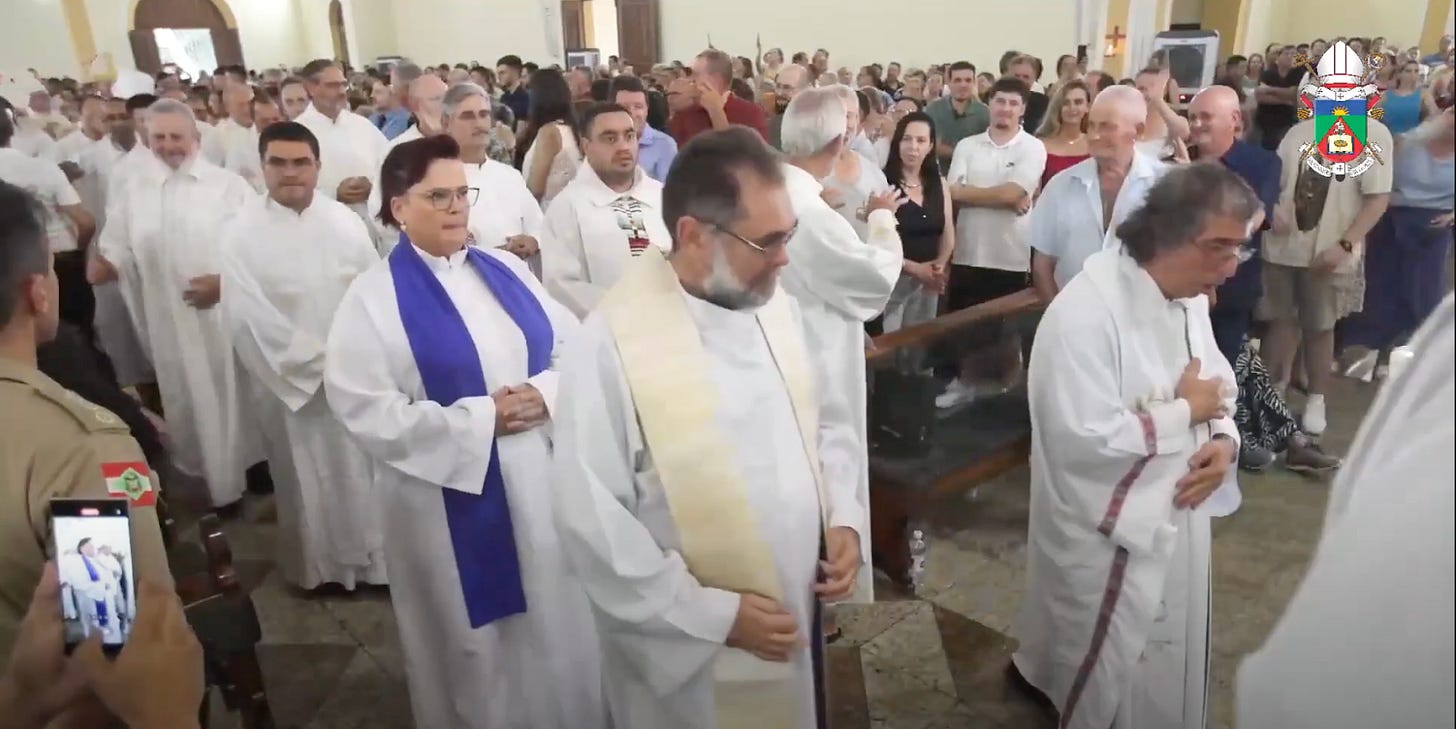(ZENIT News / Chapecó, 19.02.2025).- The inauguration ceremony of the new Archbishop of Chapecó, Odelir José Magri, last February 9, went from being a solemn event to the epicenter of a controversy that has shaken the Brazilian Catholic community. The reason: the visible and active participation of Viivian Schwanke De Oliveira, “priestess” of the Anglican Episcopal Church of Brazil, in a Mass that should have followed strictly the liturgical protocols of the Catholic Church.
Not only was De Oliveira present during the celebration, but she aligned herself with the Catholic clergy in the queue for Holy Communion, generating questions regarding compliance with liturgical and canonical norms. The live broadcast of the event was interrupted when she was about to receive the Eucharist, which has awakened even more suspicions and criticisms in Catholic sectors.
Ecumenical Gesture or Serious Fault?
Archbishop Magri, who assumed his position after being appointed by Pope Francis in November of 2024, praised the ecumenical character of the event in his homily, mentioning De Oliveira by name. However, her inclusion in the celebration has generated a debate on the limits of inter-religious dialogue and fidelity to the norms established by Canon Law.
Canons 907 and 908 expressly prohibit a lay person from leading prayers of the Eucharist and Catholic priests concelebrating with Ministers of other Christian denomination without full communion with Rome. Moreover, Canon 844 restricts access to Holy Communion to members of the Catholic Church, except in very specific circumstances, which did not apply in this case.

The Archdiocese’s Response
Given the growing controversy, the Archdiocese of Chapecó issued a press release stating that it had informed the Papal Nuncio in Brazil about what happened, describing it as an “isolated incident of inattentive violation of the liturgical norms.” In a letter, the Archbishop renewed his commitment to doctrinal and liturgical orthodoxy, and promised to take measures to avoid similar situations being repeated in the future.
Nevertheless, the explanation has not sufficed to calm the criticisms of the faithful and of ecclesial sectors who consider that what happened cannot be treated simply as an involuntary error, but as an act that calls into question respect for the doctrine and discipline of the Church.
An Uncomfortable Precedent
The Chapecó case has revived the debate about up to what point the ecumenical opening can lead to the flexibilization of norms that the Catholic Church has maintained for centuries. Although the Vatican promotes inter-religious dialogue, the active participation of non-Catholic Ministers in a Mass represents a challenge for doctrinal and sacramental unity.



